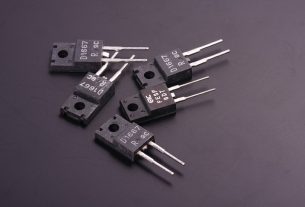1. Electronics, encompassing transistors, integrated circuits, and capacitors, is the study and application of electrical systems. From phones and computers to industrial machinery, it has revolutionized communication, entertainment, healthcare, and more. Pioneers like Thomas Edison and Nikola Tesla laid the groundwork in the late 19th century, leading to key inventions such as the transistor and integrated circuits, which have miniaturized devices and enabled advancements in AI, IoT, and quantum computing. Today, electronics continue to transform our lifestyle, powering smart homes, cities, and factories with versatile and innovative technology.
The world of electronics has transformed our lives, from the devices we hold in our hands to the systems powering industries. This article explores what exactly electronics are and takes you on a journey through their history and evolution. We’ll uncover the key components that drive modern applications, shedding light on how they shape our daily routines. Prepare to discover the fascinating impact of this technological marvel.
- What is Electronics?
- History and Evolution: From Early Innovations to Modern Wonders
- Key Components and Applications: Shaping Our Daily Lives
What is Electronics?

Electronics is the study and application of electrical circuits, components, and systems. It involves the design, development, and utilization of electronic devices that harness and manipulate electrical energy to perform various functions. These devices range from simple everyday items like mobile phones and computers to complex industrial equipment such as radar systems and medical imaging machinery.
The field of electronics has revolutionized numerous aspects of modern life, enabling advancements in technology that were once unimaginable. It plays a pivotal role in communication, entertainment, transportation, healthcare, and countless other sectors. By understanding and manipulating the behavior of electrons, engineers and scientists have created devices that process information, transmit signals over vast distances, automate tasks, and improve the overall quality of our lives.
History and Evolution: From Early Innovations to Modern Wonders

The history of electronics is a fascinating journey from primitive innovations to modern wonders. The concept of electronic devices dates back to the late 19th century when inventors like Thomas Edison and Nikola Tesla pioneered the use of electricity for practical applications. These early experiments laid the foundation for the development of various components that make up our modern electronics, such as capacitors, resistors, and transformers.
Over time, the evolution of electronics has been marked by significant milestones. The invention of the transistor in 1947 at Bell Laboratories revolutionized electronics, enabling smaller, faster, and more efficient devices. This led to the birth of integrated circuits (ICs) in the 1960s, which further miniaturized electronic components, paving the way for the microprocessors that power our computers and smartphones today. Today, the field of electronics continues to advance at a rapid pace, driven by innovations in areas like artificial intelligence, Internet of Things (IoT), and quantum computing.
Key Components and Applications: Shaping Our Daily Lives

The key components of electronics, such as transistors, integrated circuits, and capacitors, are the building blocks shaping our daily lives. These components enable a vast array of applications, from powering our smartphones and computers to controlling complex machinery in industries like automotive, healthcare, and aerospace. The versatility of electronics allows for continuous innovation, leading to more efficient, compact, and user-friendly technologies.
Whether it’s streaming media on demand, enjoying immersive gaming experiences, or receiving real-time updates from around the globe, electronics play a pivotal role in enhancing our communication, entertainment, and productivity. Moreover, they drive automation in smart homes, cities, and factories, optimizing resource use and improving quality of life. In today’s interconnected world, understanding and appreciating these electronic advancements is essential to grasp the modern lifestyle and its potential for further transformation.
Electronics have evolved from early innovations to modern wonders, permeating every aspect of our daily lives. From key components like transistors and microchips to diverse applications in communication, healthcare, and entertainment, electronics continue to drive technological advancements. As we navigate an increasingly digital world, understanding the fundamentals and appreciating the marvels of electronics is essential. Remember that these developments are not just tools; they are revolutionizing how we live, work, and interact with technology.



